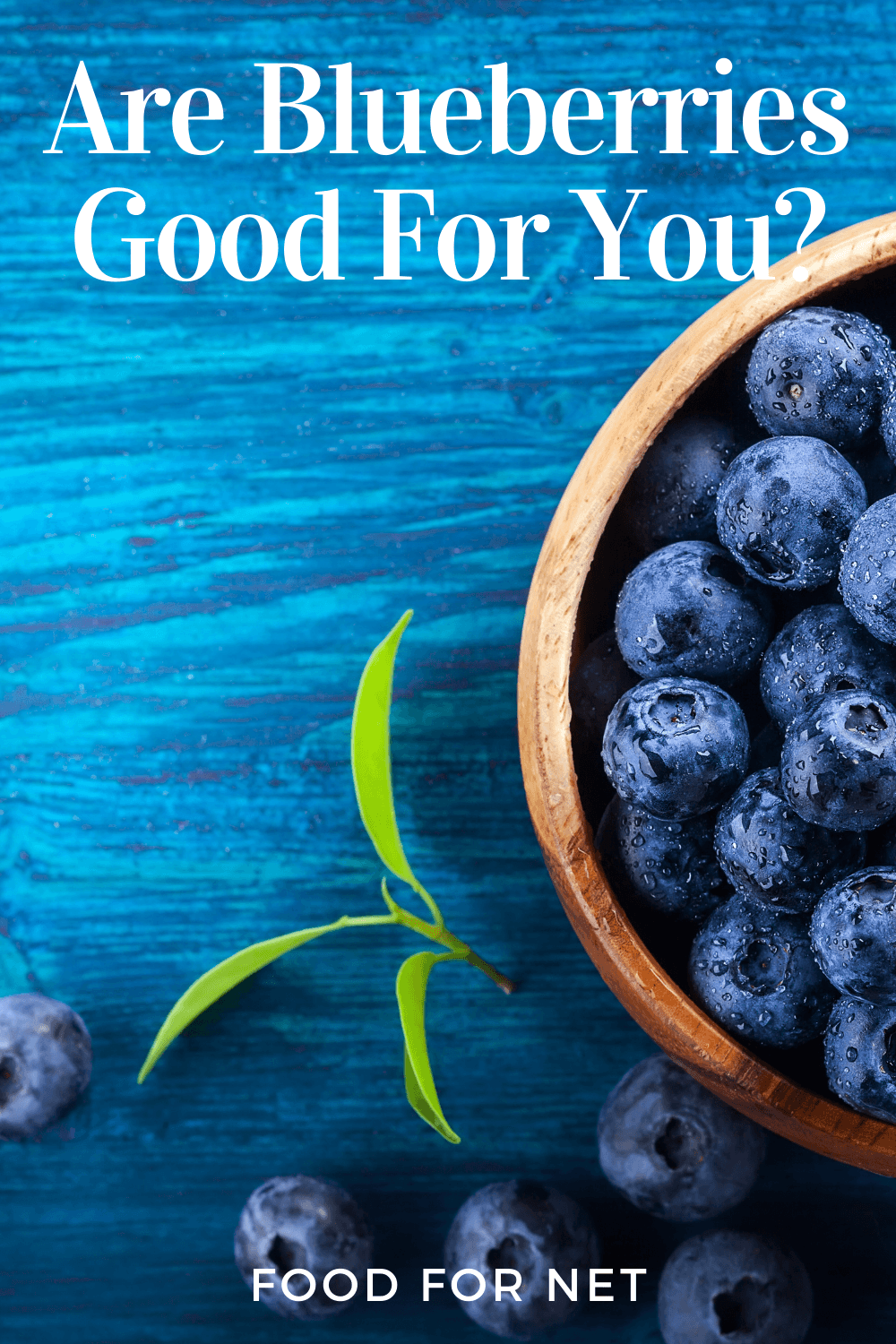
Blueberries are the poster child for superfoods. They’re well-known as a potent source of antioxidants and other plant-based compounds. It’s easy to imagine that adding a handful or two of blueberries to your diet will dramatically improve your health. Yet, are blueberries good for you?
The question is worth asking, as foods aren’t always what they seem to be. Take spinach, as an example. This dark leafy green is renowned for being nutrient dense, yet it’s also a significant source of oxalates – to the point that some people need to avoid it altogether.
Then there are ingredients like butter and coconut oil. Both are often maligned for their high saturated fat content. Yet, they’re sometimes seen as healthy, particularly by keto dieters, partly because they’re relatively unprocessed. The saturated fat mightn’t even be as bad for health as it’s often thought to be.
It’s clear then that we can’t simply claim that blueberries are healthy. Instead, we need to closely look at their features and see where blueberries shine and where they are limited.
Are Blueberries Good For You?
- Blueberry Nutrition
- Benefits Of Blueberries
- How Blueberries Could Be Harmful
- Are Blueberries Powerful?
- Ways To Use Blueberries
- What About Dried Blueberries?
- Final Thoughts
Blueberry Nutrition
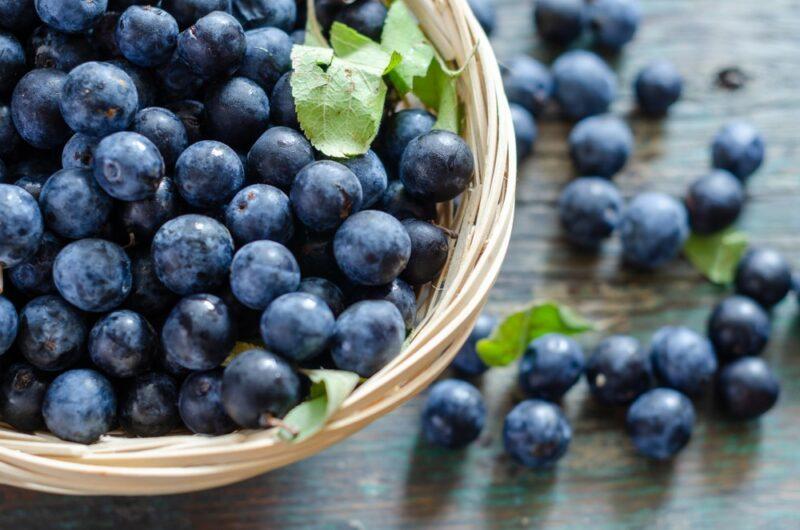
Like most fruit, blueberries primarily get their calories from carbs, making them low in fat and protein. In particular, a cup of blueberries provides you with roughly 85 calories, 14.7 grams of sugar, 3.6 grams of fiber, 1.1 grams of protein, and just 0.5 grams of fat.
As for nutrients, vitamin K and vitamin C stand out, giving you 36% and 24% of your daily requirements, respectively. There are some other important nutrients too, including manganese, vitamin E, vitamin B6, and copper.
Benefits Of Blueberries
Let’s start with the antioxidants, as these are what blueberries are most famous for. Chief among these anthocyanins. These are pigment molecules and are responsible for many of the benefits of blueberries.
Antioxidants are a hot topic and with good reason. They help to protect our bodies against free radical damage and also decrease inflammation.
That combination of effects is powerful. We now know that high levels of inflammation and oxidation contribute to many different diseases, increasing your risk of problems like cancer, heart disease, and more.
Not surprisingly then, diets rich in antioxidants have been linked to decreases in the risk of many oxidation-related diseases. Plant-based diets are often promoted for this reason, as they provide you with many antioxidants.
You can get antioxidants from many places, particularly fruits and vegetables. However, blueberries stand out as they have a high ORAC score (which stands for oxygen radical absorbance capacity). ORAC is a measure of the antioxidant activity of different foods, where higher scores suggest the antioxidants are more powerful.
The high ORAC score of blueberries makes them particularly effective for health.
Can Be Included On Keto
Fruit often contains a decent amount of carbs, so most types of fruit are a poor choice when you’re following a keto diet. This can be a problem, as fruits are rich sources of antioxidants and plant-based compounds, which you need to stay healthy.
Blueberries do contain some sugar and carbs – you get roughly 9 net grams of carbs in a half cup serving of raw blueberries. However, you’re still getting fewer carbs than with many other types of fruit.
9 net grams of carbs sounds like a lot, but you can fit blueberries onto a keto diet if you’re careful. Many people do this by keeping their serving size low.
You might even just include a dozen or so blueberries in a smoothie or on top of a dessert. Doing so would give you a decent amount of antioxidants, without increasing your carb intake too much.
Can Improve Heart Health
Blueberries may be particularly powerful for promoting your heart health and decreasing the risk of cardiovascular disease. One study found that eating 150 grams of blueberries each day was able to reduce risk by as much as 15%.
Impressive, right?
This effect is largely due to the antioxidants. One reason is that cholesterol in our blood can become oxidized. The oxidation of LDL cholesterol is particularly concerning and may be a key part of the heart disease pathway.
Foods like blueberries can strongly lower the amount of LDL oxidation.
Blueberries Taste Good
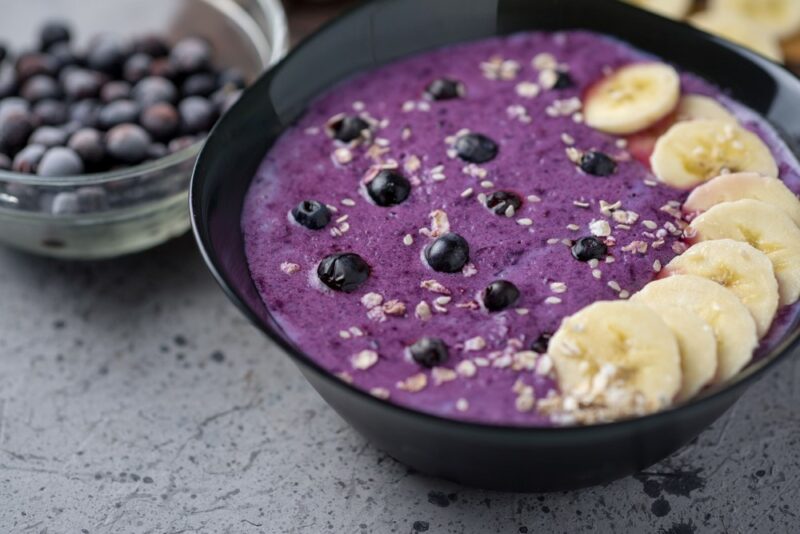
Let’s not forget that blueberries are delicious. Indeed, their flavor is one reason why so many of us eat blueberries regularly.
The way they taste matters because, let’s face it, it’s much easier to eat healthily when the food that we choose tastes good.
The taste is particularly important if you’re preparing food for a picky eater.
How Blueberries Could Be Harmful
The Chance For Too Much Fiber
The fiber in fruit and vegetables is generally a good thing, but not always. Having too much fiber too quickly can cause significant side effects, like bloating, gas, stomach cramps, and constipation.
Some issues can be avoided by increasing your fiber intake a little bit at a time. Drinking plenty of water helps too. While you might still get some side effects this way, they should be minor and pass soon enough. That said, you might already be getting enough fiber in your diet – particularly if your diet is already rich in fruits and vegetables. If this is the case, then adding more fiber to your diet won’t help at all.
The Sugar Content
While the benefits of fruit clearly outweigh the risks, we can’t forget about the sugar content either. A full cup of blueberries contains close to 15 grams of sugar, which is a decent amount.
This is natural sugar, so it should be healthier than any sugar that’s added to processed foods. Even so, some of the problems of sugar are true regardless of where it comes from.
This means that you still need to be careful with the amount that you consume.
Most importantly, don’t assume that you can eat as many blueberries as you like, simply because they’re good for you. You’ll still need to keep an eye on your fruit intake to make sure that the sugar and calories fit well within your needs.
Pesticide Residue
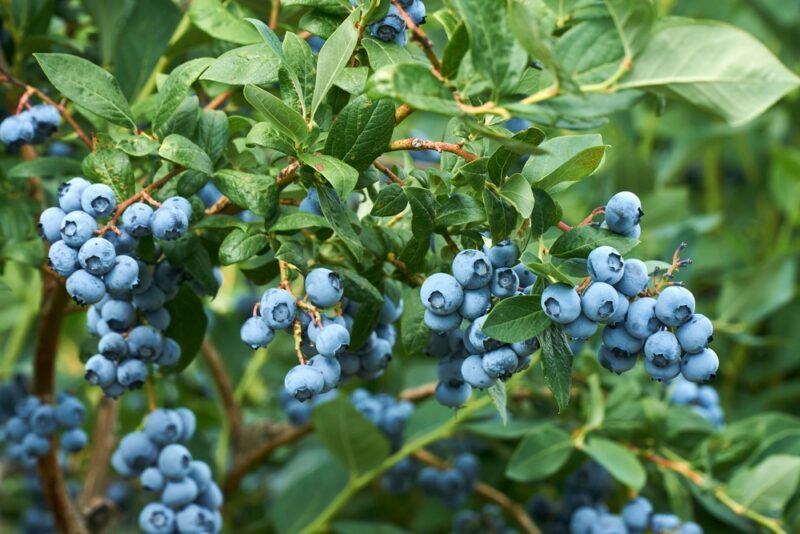
Pesticides are often used when growing crops, to help keep them free from pests and make farms more profitable. However, there’s the risk that some of these pesticides remain on your food and influence your health.
Blueberries fall somewhere in the middle for pesticides. They don’t make it onto dirty dozen lists, but they’re not the cleanest fruits either.
Because these residues can remain even after washing fruit and vegetables, the best way to protect yourself is to focus on organic crops or other producers where you know that no pesticides have been used. Harvesting blueberries from the wild or growing your own are viable approaches as well.
The Displacement Effect
It’s easy to see superfoods like blueberries as being amazing and as being ingredients that you should focus on. However, this idea sometimes means that we overlook other foods.
This displacement effect is concerning, as you’re missing out on the healthy compounds from other types of food.
Take berries, as an example. Blueberries are by far the most famous type of berry, but there are plenty of others, including blackberries and strawberries. Each type has its own balance of nutrients and plant-based compounds.
It’s often healthier to drop the superfood idea altogether. Rather than eating blueberries every day, try to include a variety of fruits and vegetables in your diet. This way you’re getting plenty of different antioxidants, along with a wider array of nutrients.
Can Interact With Blood Thinners
Vitamin K plays various roles in our body, including regulating blood clotting. This is why high amounts of vitamin K can slightly thin the blood and even increase the risk of bruising.
The effect isn’t strong, so it’s not a problem for most people. However, vitamin K intake becomes very relevant for anyone taking blood thinners, as vitamin K influences the effectiveness of those medications.
To avoid issues, it’s important to make sure your blood thinner doses are adjusted to account for your vitamin K intake.
Are Blueberries Powerful?
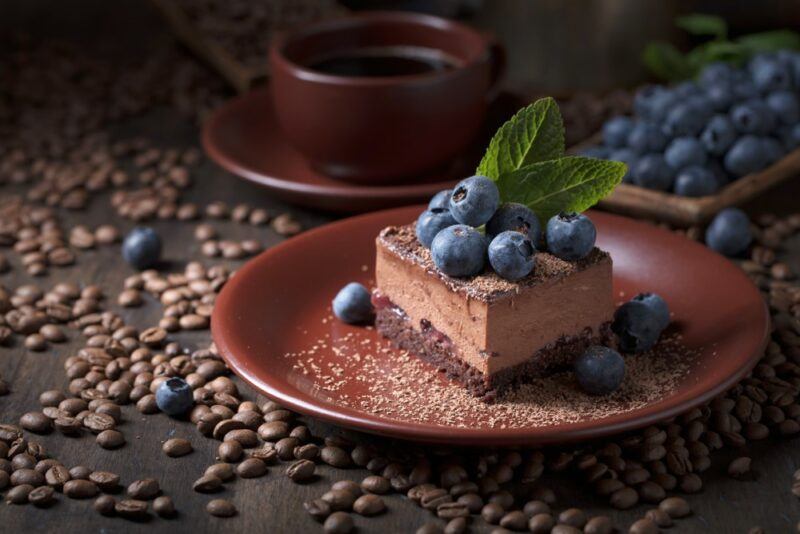
Blueberries offer clear benefits and are worth eating for the antioxidant content alone. Even so, it’s easy to get overly excited about superfoods, including blueberries.
With few exceptions, the important compounds from food are only relevant if you actually need them.
Take potassium, for example. It’s an important nutrient, one that helps to lower your blood pressure levels. But, if you’re already getting enough potassium more won’t do much of anything. In fact, getting too much potassium could even make you sick.
Earlier on we talked about a similar pattern for fiber, as you get digestive side effects with too little fiber and too much.
Antioxidants are slightly different, as there are so many distinct types. However, even then, adding more antioxidants to an antioxidant rich diet won’t have much effect at all.
This means that if you’re not consuming many fruits and vegetables currently, having some blueberries most days could make a huge difference. But, if your diet is already rich in plant-based foods, the blueberries won’t have much effect at all.
Ways To Use Blueberries
Blueberries are endlessly versatile. The easiest option is to eat them raw. Or, for something a little different, try freezing them and eating them for a snack in the summer.
Blueberries are also a fantastic smoothie addition. If they’re frozen, the blueberries will add an interesting texture to your smoothie (just like ice does, but without diluting your drink).
Then there are all the baking and dessert recipes that rely on blueberries, along with options like blueberry jam and fruit compote.
However, you do need to be a little careful, as some recipes end up being higher in sugar than you might expect.
What About Dried Blueberries?
Dried blueberries are delicious and easy to use. Plus, they’re a concentrated source of the nutrients in blueberries.
Yet, despite this, they might not be the best choice for health. Part of the problem is that dried blueberries end up being a concentrated source of sugar as well and it’s easy to consume too many of them.
This issue can be easily seen with trail mixes. These make fantastic energy-boosting snacks, especially when you’re camping. They’re also filled with healthy ingredients, including nuts, seeds, and dried fruit (some versions even feature dried blueberries).
Yet, many trail mixes rely far too heavily on dried fruit, making them high in sugar and calories.
Final Thoughts
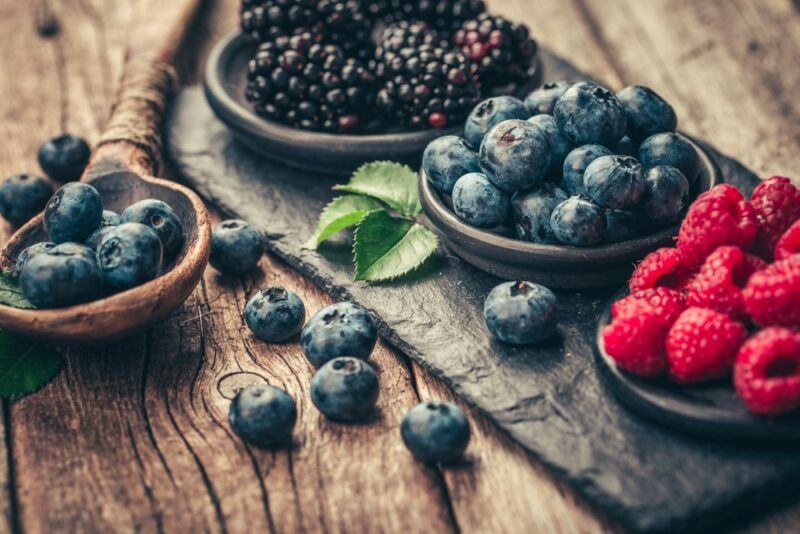
Adding half a cup or so of blueberries to your diet could be a powerful approach, providing you with plenty of antioxidants and fiber, while helping to reduce your heart disease risk. The berries taste amazing as well, so what do you have to lose?
There aren’t even that many issues with blueberries to think about. The main problem is just that you might overdo it, but as long as you keep to reasonable portion sizes, this isn’t likely.
Still, it’s important to remember that blueberries are just one type of fruit. They may be more famous than most other fruits, but this doesn’t mean that they should be your go-to every time. Don’t be afraid to experiment with other options. Each type brings its own features to the table.
Frequently Asked Questions
Are Blueberries Acidic?
Like most fruits, blueberries are acidic, with a pH of between 3 and 3.5 (some estimates place the pH higher, at 4 to 5, but the berries are still acidic either way).
The acidity could be a problem for acid reflux, but only if you are highly sensitive. Many people with acid reflux find that they can still eat blueberries regularly without an issue.
How Many Ounces In A Pint Of Blueberries?
Pints of blueberries are sold based on volume, not weight. As such, there’s no set weight for a pint. In fact, because blueberries vary in size and density, blueberry pints often have different weights. However, you’re normally looking at between 10 and 12 ounces of blueberries in a pint.
Are Blueberries Keto Friendly?
Blueberries aren’t great for keto, as you get 12 net grams of carbs in a 100 gram serving. In contrast, raspberries and blackberries only contain 5 net grams of carbs for the same serving.
You can still use blueberries though, as long as you watch your portion size. There are even plenty of recipes to help, including keto blueberry bread and keto blueberry smoothies. After all, following keto necessarily involve cutting out your favorites. Often you just need to be wise with recipes and portions instead.
What Color Are Blueberries?
Despite the name, blueberries aren’t really blue at all. Instead, they’re better described as being rich purple.
The blueberries you find in the grocery store tend to have a light colored interior, which is often white or light yellow. In contrast, wild blueberries have a much richer purple interior. This can give wild blueberries are more intense flavor and increases their antioxidant content.
Are Blueberries Good For Diabetics?
Berries all have a relatively low glycemic index, which makes them excellent for diabetics. They’re also a good source of fiber, antioxidants, and some nutrients. Those features can all help to promote health and reduce the risk of diabetic complications.
The anthocyanins (these give blueberries their rich purple color) may even help to stabilize your blood sugar levels.





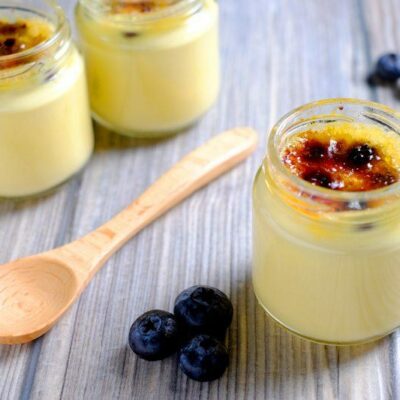
 17 Best Vegetables for Diabetics and How to Guides in Managing Diabetes
17 Best Vegetables for Diabetics and How to Guides in Managing Diabetes
Leave a Reply